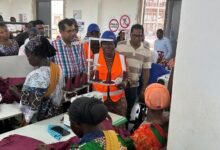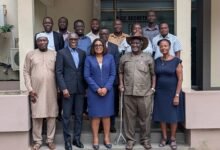
An Australian-based Mining Consultant says it is prudent for Ghana to maintain macro-economic stability and promote value addition on the mineral resources locally, in order to drive sustainable growth and increase job creation.
Mr Henry Antwi, also a Fellow of the Australasian Institute of Mining and Metallurgy, urged mining and metal firms to capitalise on the vast resource potentials of Ghana to advance mineral-based industrialisation and remain competitive in the global market place.
He called for improvement of the country’s mineral cadastre to increase transparency in the management of mineral resources, simplifying regulatory approvals and minimising administrative bureaucracy in the granting of mining licences.
This, he said, could be achieved by leveraging on international best practices for resource governance and sustainability.
The Australian-based Mining Executive gave the commendation at the second quarter meeting of the Accra Mining Network, a not-for-profit organisation, in Accra.
The platform afforded members of the network the opportunity to discuss mining related issues, fraternise and exchange ideas on emerging interdisciplinary best practices of the industry.
Addressing mining engineers, policy-makers, geoscientists and bankers on the topic: “Contemporary Strategies for Developing Minerals Based Value Chain”, Mr Antwi called for transparent procurement processes, access to geo-scientific data for effective roll-out of policies and skilled personnel and locally sourced mine inputs.
He said poor policy implementation, inadequate infrastructure, lack of specialised skills and technology, as well as scarcity of domestic capital, had been the obstacle for resource growth in many developing countries, including Ghana.
Dr Kojo Busia, the Chief of Natural Resources Management Section, Division of Climate Change, Environment and Natural Resource at the United Nations Economic Commission for Africa, who was the special guest, highlighted the potential of the country’s mining sector, which could serve as catalyst for economic industrialisation and diversification.
He underlined the need for creation of mining industrial zones in Ghana that would fast-track industrial transformation across the various sectors of the economy.
Explaining the National Supplier Development Programme (NSDP), Dr Busia said, it was a systematic strategic programme to scale up domestic suppliers’ capacity, capabilities and competiveness and reverse the trend of de-industrialisation and strengthen linkages between the mineral sector and other economic activities.
He noted that in 2015, gold mining operators spent some US$1.2 billion on operational expenditure, representing three per cent of the country’s Gross Domestic Product (GDP).
Despite the huge procurement opportunities in the mining sector, he said only a handful of domestic manufacturing firms or service providers had taken advantage to scale up and create value in the mining supply chain, with Ghana still importing 80% of the mining procurement needs while most products sourced locally had little or no value-addition.
Ms Joyce Rosaline Aryee, a former Chief Executive Officer of the Ghana Chamber of Mines, who presided over the meeting, said mining affects the lives of many Ghanaians, therefore it was prudent to make sure the right things are done for its sustainability.
“We need to challenge ourselves to make monumental difference because the mining industry is being sidelined, and if care is not taken only minerals that will support the information technology linkage will thrive in the future,” she noted.
Mrs Georgette Barnes, President of the Accra Mining Network, underlined the need for mining value chain businesses to form consortium in order to leverage on their collective strength and expertise to compete efficiently in the industry. GNA





